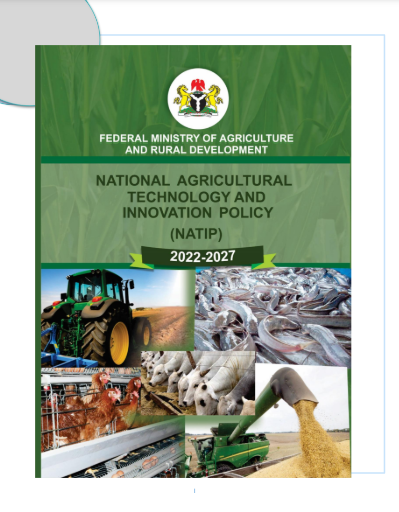National Agricultural Technology and Innovation Policy (NATIP) – The Federal Ministry of Agriculture and Rural Development is mandated to ensure food security, employment generation and wealth creation through improved commodity value chain activities and rural infrastructural development. Meanwhile, the government has demonstrated consistent efforts to diversify Nigeria’s economy through agriculture. In recent times, the interlinked frameworks of the Agricultural Promotion Policy (2016-2020); the Economic Recovery and Growth Plan (2017–2020), and the Economic Sustainability Plan (2020-2021) focused on laying a foundation for rapid agricultural development using comparative advantage exploration, climate change adaptation, nutrition-sensitive agriculture, agro-enterprise promotion and market access linkages. As a result, massive investments were attracted into agriculture making Nigeria closer to selfsufficiency, particularly in rice and poultry production.
Interestingly, the extant policy direction of the government as encapsulated in the National Development Plan (2021-2025) reiterated earlier commitments to deploy knowledge, technology, innovative and global best practices to integrally strengthen the economic diversification process by revamping research, training, extension, improving access to inputs, technology and markets to revitalize agricultural production and processing in a manner that would create job opportunities and increase export revenue.
Accordingly, FMARD conceived the National Agricultural Technology and Innovation Policy (NATIP) to modernize the agricultural sector in line with the changing global food systems and supply chains. NATIP, 2022-2027 as approved by the Federal Executive Council on Wednesday, 18th May, 2022 will operate within other policies and strategies of relevant MDAs to ensure synergy and better coordination.
The renewed sectoral policy direction would consolidate the successes recorded in the implementation of the previous agricultural development policies and the repositioning of the National Agricultural Research System, holistic mechanization drive, provision of rural infrastructure, standardization of inputs and processing systems and techniques; development of commodity value chain through clusters and special agro-processing zones.
This Policy is not oblivious of the security challenges that threaten agricultural land and investments. Hence, a coordinated response has been carefully crafted to mobilize critical stakeholders to restore peace and security necessary for increased agricultural performance. Equally, the Policy generated important lessons from the COVID-19 pandemic, which further reinforced Government’s resolve to pursue policies and programmes that would make Nigeria food secure and competitive in the global food chain.

